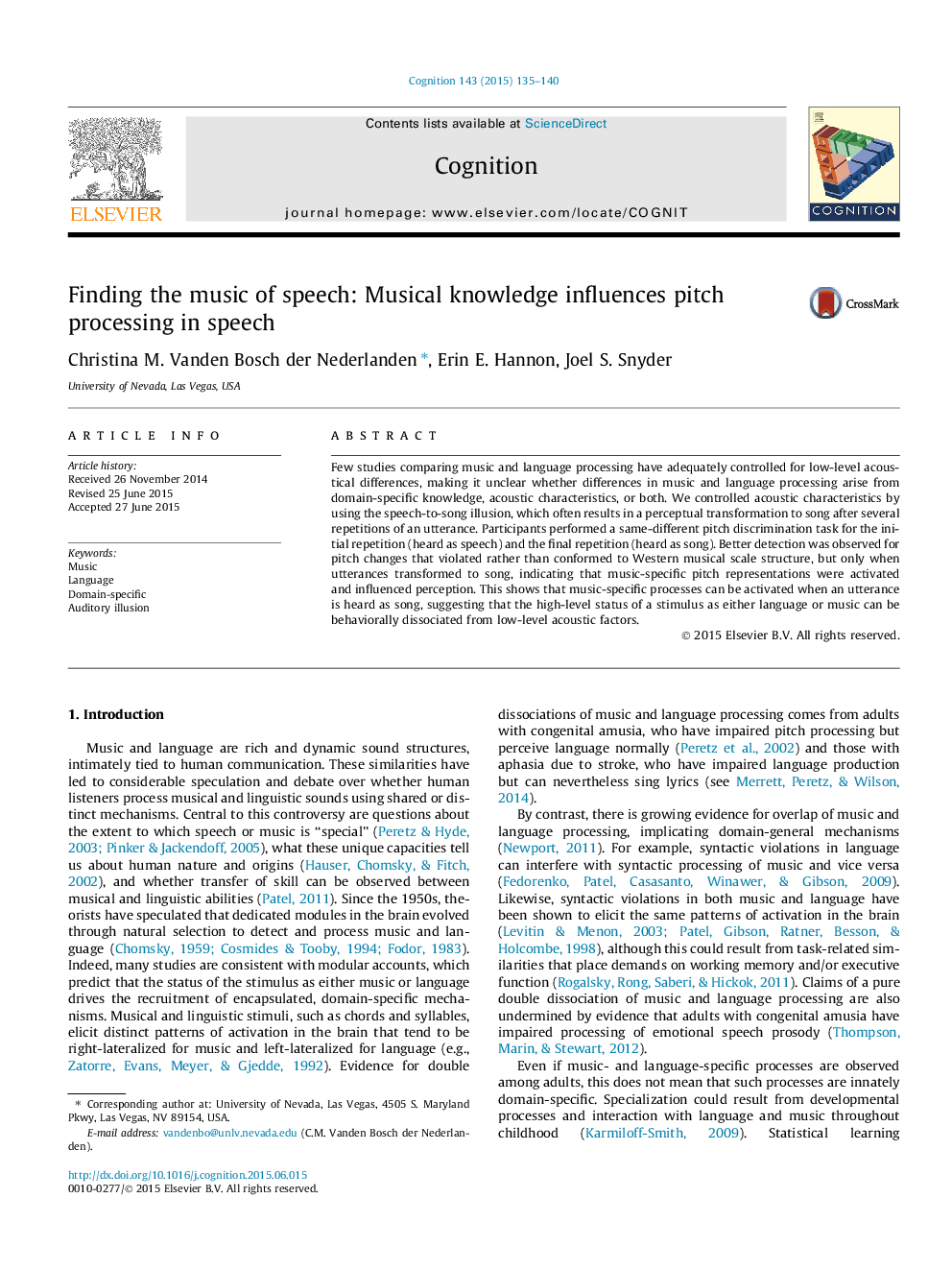| Article ID | Journal | Published Year | Pages | File Type |
|---|---|---|---|---|
| 7286701 | Cognition | 2015 | 6 Pages |
Abstract
Few studies comparing music and language processing have adequately controlled for low-level acoustical differences, making it unclear whether differences in music and language processing arise from domain-specific knowledge, acoustic characteristics, or both. We controlled acoustic characteristics by using the speech-to-song illusion, which often results in a perceptual transformation to song after several repetitions of an utterance. Participants performed a same-different pitch discrimination task for the initial repetition (heard as speech) and the final repetition (heard as song). Better detection was observed for pitch changes that violated rather than conformed to Western musical scale structure, but only when utterances transformed to song, indicating that music-specific pitch representations were activated and influenced perception. This shows that music-specific processes can be activated when an utterance is heard as song, suggesting that the high-level status of a stimulus as either language or music can be behaviorally dissociated from low-level acoustic factors.
Related Topics
Life Sciences
Neuroscience
Cognitive Neuroscience
Authors
Christina M. Vanden Bosch der Nederlanden, Erin E. Hannon, Joel S. Snyder,
